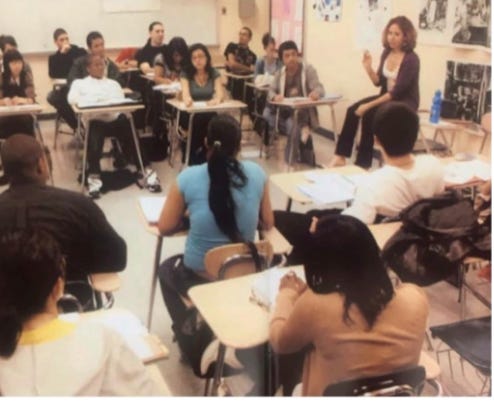I have been thinking a lot about process versus product lately.
As a society, we are overly focused on the end result and not the individual steps that go into achieving our respective goals.
I am trying to be more mindful of my process lately after a lifetime of being overly focused on chasing the highest grades and the fastest running times.



I can attribute some of my obsession with product over process to my profession. In my 21 years of teaching, a major focus in the education system has been preparing students to pass standardized tests. In my case, the five classes that I teach culminate in the New York State Regents U.S. History exam and the College Board AP U.S. History exam.
For two decades - the whole time that I have been teaching - our nation has been obsessed with standardized exams. It all started when President George W. Bush signed the K-12 No Child Left Behind Act in 2002. The belief was that we could test our way to educational excellence and find a way to end the achievement gap in America. Following the same philosophy, President Barack Obama continued a similar policy. It did not work. However, we are still standardized testing students nonstop in school.
We are beginning to see a shift when it comes to tests and college admissions. For example, fewer universities and colleges are putting an emphasis on tests like the SAT and they are also less likely to award college credit for high scores (generally 4s and 5s) on AP exams.
Yet, these standardized tests still have a stranglehold on students and teachers alike. As a result, the focus in school is less on the learning process and more on the final product: THE TEST.
Now new AI technologies have entered the chat and they pose a challenge to how we evaluate students in the education system.
With the advent of ChatGPT, we are possibly going to be forced to rethink how and what we teach, as well as how we assess learning. This AI chatbot was launched in November 2022 and can do everything that use as student assessment in school, from writing essays to taking exams. Recognizing this as a potential threat to the system, the New York City education department has already blocked ChatGPT access on school computers and networks. But, we all know that we can not stop these new technologies from being created and sought out by students.
Ultimately, I am not too worried about all of this.
Educators have always excelled at changing with the times and finding thoughtful ways to integrate new technology into their pedagogy.
I am old enough to remember teaching before students had smartphones or laptops. Here is a photo from circa 2007 to prove it:
Now every student sits in my class scrolling and typing on devices. My teaching style has changed as a result.
With this new technology, I will have to keep coming up with new ways to adapt. For example, the new AI technology can easily generate a finished essay for a student. Therefore, educators are going to be challenged to focus more on the process of writing than the final product. Writing is basically organizing your thinking, making your thoughts visible, and showing your voice. Teachers will need to focus more on that part of writing and not the essay they turn in at the end. Therefore, educators can implement AI into their lessons as a tool to support and enhance learning instead of as a replacement
So, ironically, a technology designed to help us fast forward to the final product might force us to slow down and focus more on the process.
P.S. Speaking of standardized tests, please read this excellent breakdown from Popular Information with all the receipts explaining why the College Board watered-down its new African American Studies course
Also, check out this excellent piece from Anne Lutz Fernandez about the political landscape around the College Board and DeSantis situation.
I plan on writing about this topic in a newsletter I will publish this week. Stay tuned. Until then like, comment, share, subscribe and do whatever else you’d like to do with this post!








https://grist.org/science/climate-denial-campaign-goes-retro-with-new-textbook/